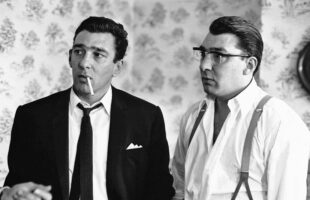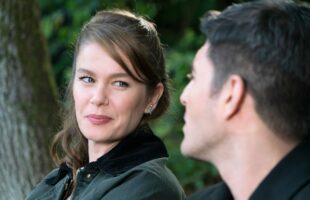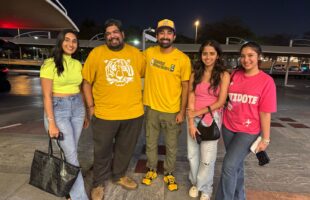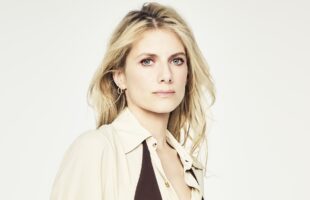If you are in your middle age like me, you would probably remember this commercial that literally got everyone singing then – ‘I’d like to teach the world to sing’. Yes, the song is based on the famous Coca Cola TV commercial that featured the lyric line ‘It’s the real thing’, the company has established its credentials as a bona fide entertainment company. The other famous commercial – ‘Times of your life’ – sang by Paul Anker for Kodak films then.
But Coke’s investment in that song, melding its marketing ambitions with the entertainment industry, was not its only early foray into the craft of branded content. As Jonathan Mildenhall, Coke’s VP, global advertising and content excellence, explains, the Coca Cola brand has worked with Hollywood stars since the 1930. In fact, research reveals that the company was backing opera singer Lillian Nordica at New York’s Metropolitan Opera on a Coke tin in 1903.
Coke collaborated with such U.S. singing sensations as Aretha Franklin, Ray Charles and Diana Ross in the 1950s and 1960s. It even owned a major Hollywood studio, Columbia Pictures, in the 1980s, during which it won a Best Picture Oscar for Gandhi.
“For the past 125 years, Coke has understood the importance of earning a disproportionate share of popular culture,” Mildenhall said. “As well as being refreshing, our brands have to be seen as credible sources of entertainment in their own right.”
More recently, the Coke Zero drink has had prominent placements in action movies like the James Bond franchises. Coke financed a No. 1 hit in 18 countries with Wavin Flag. The official FIFA 2010 World Cup theme song. It has worked with international DJ David Guetta, Bollywood star Akshay Kumar for its Thumps UP drink in India, and the production of the six-minute multi-platform short film Great Happyfication by ad agency Wieden+Kennedy Amsterdam.
Each project’s sole purpose is to reinforce Coke’s brands in consumers’ consciousness. And the strategy must be working. Consultancy group Inter-brand ranked Coca-Cola No. 1 in its 2013 Top 100 global brand, giving it a brand value of US$71.8 billion.
Mildenhall adds, “We do not do anything unless we are confident the initiative drives shareholder value either through creating brand love or brand value. We are at our absolute best when we do both.”
If branded entertainment is to be an effective replacement of or adjunct to the traditional 30-second broadcast spot. Advertisers need to understand the radically disruptive changes taking place in the way consumers and media interact. Consumers are consuming more content 24 hours-a-day.
Other global brand-owners make similar observation. Procter & Gamble (P&G) funded some of the earliest TV and radio shows in the first half of the century. “It is imperative that our use of branded entertainment helps brands to drive awareness and increase purchase intent,” says Paul Jackson, Associate Director, P&G Global Entertainment. “The most successful branded entertainment are the ones where the brand is an integral part of the story, and the audience grows an affinity for the brands as a result of the association. This is what we strive for in all our projects.”
P&G projects include more than 50-made-for TV movies, 20 soap operas and 30 years plus of the People’s Choice Awards, the US popular-culture awards voted for by the public.
Beer maker Anheuser-Busch InBev (AB InBev), another international marketer, could be forgiven for feeling intoxicatingly smug. Early last year, Bud United Presents The Big Time, a reality-TV series that AB InBev co-produced with transmedia – producer @radical.media, got a hot shot on the U.S. major network ABC. It aired on Saturdays at 1600 hours, just before sports. The series will be distributed internationally by FremantleMedia Enterprises.
Centred on AB InBev’s Budweiser beer brand, the seven episode features contestants from all around the world being mentored by celebrities from the world of baseball, motorracing, soccer, haute-cuisine, music and other entertainment to fulfil their dreams.
The company has done something similar called Bug House around the 2010 FIFA World Cup soccer tournament. Although a hit, it was a web-only series. Bud United Presents was a multiplatform venture that took in Facebook and other social-media platforms.
Hasbro, the 89-year-old toy maker, owns the rights to more than 1,500 toy and entertainment brands, operates its own production studio (Hasbro Studios) and co-owns children and families’ TV network The Hub with Discovery Communications.
It is also experienced in extending its toys, board games and thirdparty rights into movies such as Transformers; GI Joe, video games and TV shows – Transformers Prime, My Little Pony and Family Game Night.
Although it couldn’t be more difficult as a company, Macy’s, the iconic U.S. department store whose venture into entertainment is seen in its famous Thanksgiving Day parades, is committed to branded entertainment. The store’s entertainment operations have extended into TV and Yes, Virginia, an animation show made with ad agency JWT and aired on CBS. In April, Macy’s Million Dollar Makeover reality show, debuted on the U.S.’ TLC network.
Macy’s ultimate goal in creating content and entertainment is to find different ways for its customers to engage with its brand. Even its relationship with artists and entertainers is different. Whether it’s Donald Trump, Sean Combs or Justin Bieber, they work with Macy’s to support both Macy’s and their own business or products.
Bing, computer giant Microsoft’s search engine, is taking branded entertainment into new. directions. In what is believed to be unprecedented, it is paying for the recording of an artist signed to a major record label. While several marketers have been known to finance individual tracks, leaving major labels to finance albums, Bing funded the remix album by U.S. rapper Theophilus London. Since its launch, Bing has many partnerships with the entertainment community. As its target audience has become more focused on reaching Generation Y – the millennial generation, entertainment became important. The Bing brand has also been involved in several TV shows like The Walking Dead, Glee Project and American Idol, including sponsorships.
Music is significant in the branded content co-created by Viacom International Media Networks (VIMN), which operates the youth-oriented MTV TV networks internationally, with branded partners. Last year, The Black Eyed Peas’ gig at the MTV World Stage concert in New York for the Volkswagen campaign was aired on the MTV channels globally and streamed ‘live’, as were special editions of MTV’s auto-themed programmes like Pimp My Ride.
With fashion designer Calvin Klein, VIMN promoted ‘live’ shows in major music cities, including London, Beijing, Berlin and Mexico City. The concerts were part of the CK one-sponsored multiplatform MTV Push initiative to promote emerging music acts. Yet, they were also designed to promote CK one jeans, underwear, swimwear and Calvin Klein supermodel Lara Stone. And to encourage the youth spectators to interact with the brand, a CK one box located at the venue and installed with a special camera, invited them to create user-generated videos that could be shared on Twitter, Facebook and ckone.com.
Talenthouse, which helped the partnership between Bing, rapper Theophilus London and Warner Bros. describes itself as a social-technology company. Based in California, it operates a social-media website dedicated to a community of creators worldwide, including aspiring actors, designers, photographers, musicians and film directors. Depending on agreement terms, Talenthouse then connects its more than one million registered members of creators to marketing campaigns involving high-profile brands and celebrity artists. This is possible thanks to Talenthouse’s deals with major content owners, including Universal Music Group, Warner Music Group, Sony Music Entertainment, EMI Music, live-events promoter Live Nation its rival AEG.
Talenthouse is then able to introduce participating brands to millions of, usually young, socialmedia consumers worldwide via its members’ respective social-media sites. Talenthouse’s other projects have featured Rihanna, Lady Gaga, DJ Deadmau5, Hollywood director Brett Ratner and brands like Nokia, and fashion house Dolce & Gabbana.
Another next-generation branded content specialist is Australia-based transmedia company Hoodlum. It’s CEO, Tracey Robertson however, warns brand owners not to treat branded entertainment as second class marketing solution. “To create quality content, you need to spend reasonable money and brands are realising you get what you pay for,” she says. “So trend-wise, we’ve seen the rise of big-budget branded entertainment with high production value, driven by high-profile creative, show runners and directors. The other challenge is for content producers and brands to be able to speak to each other – an understanding of film language is just as important as understanding and embracing brand values.”








